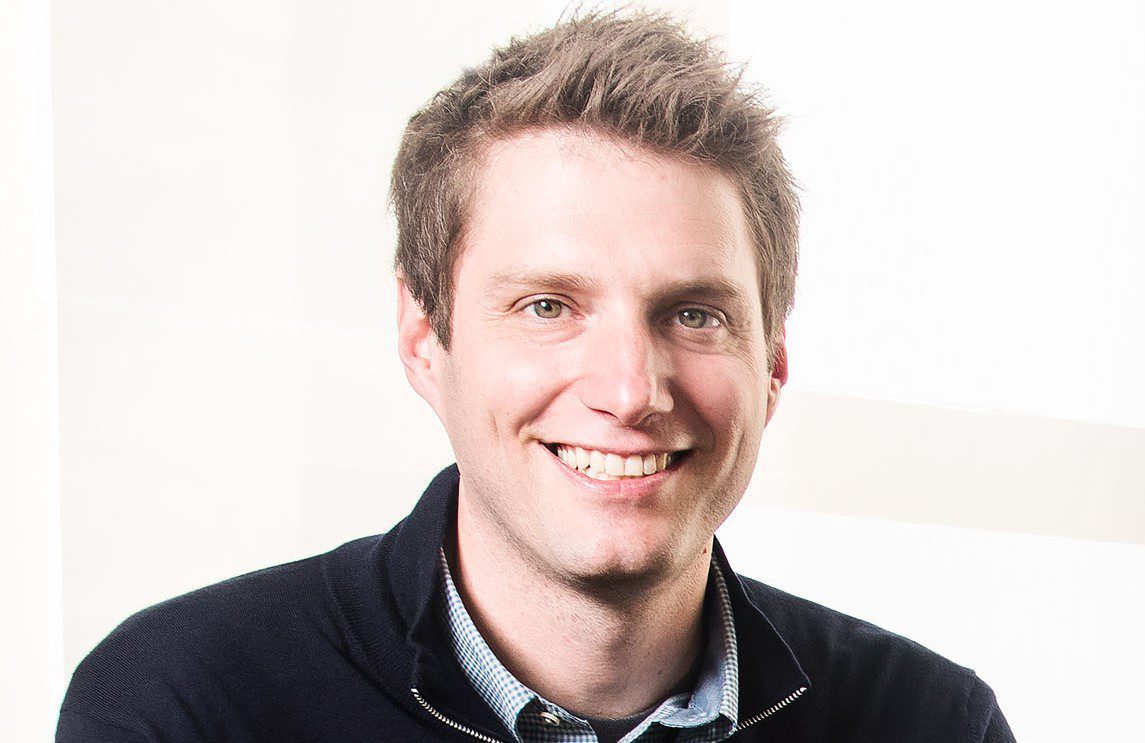 Danny Leffel is a bit of a serial entrepreneur, having founded and built four companies in the tech world in the past decade-and-a-half. His latest venture is Crew, a communications app for desk-free workers (think restaurants, retail, hotel and emergency services employees) that helps to keep these critical teams on the same page. The app is being used by employees at Macy’s, Staples, Domino’s, McDonald’s, CVS and others, and is helping increase growth and reduce turnover at companies leveraging the solution.
Danny Leffel is a bit of a serial entrepreneur, having founded and built four companies in the tech world in the past decade-and-a-half. His latest venture is Crew, a communications app for desk-free workers (think restaurants, retail, hotel and emergency services employees) that helps to keep these critical teams on the same page. The app is being used by employees at Macy’s, Staples, Domino’s, McDonald’s, CVS and others, and is helping increase growth and reduce turnover at companies leveraging the solution.
According to Leffel, creating a culture of empathy is critical in successful businesses, as no amount of success can be sustainable unless the growing team works well together. Chief Executive spoke with him about that, as well as the importance of employee communication and the evolution of his leadership style.
Since there is no standard enterprise communication tech solution for desk-free workers, what should business leaders know about the Crew app solution and what it can do for businesses that rely on these kinds of employees?
We try to create a single place for any company to organize themselves and all of their communications and to keep everybody on the same page. Crew is an app in that sense that I like to say is creating shared understanding on teams, and it’s an important leadership quality because sharing understanding means when everybody understands the big picture, knows how their efforts are going to contribute to the goals, and everybody knows where they need to be and when they need to be there, and so that everybody can be split up to have a successful day at work.
And so for so many of the businesses that we serve where you have frontline employees who are either communicating with customers and creating the customer experience or are interacting with the raw materials that make final products that are sold, these are the people that really control in a big way what these products and services look and feel like to customers. And so when you create shared understanding amongst those teams, it should not surprise me they do their jobs better and they get access in these workplaces to the same types of benefits that we’ve enjoyed in environments where we are, where we’re issued laptops in companies and email addresses.
And, yeah, it’s a problem that a lot of people haven’t heard of come about, and the reason for that is really simple. In these workplaces, workers sort of needlessly accept that this is just the way it is, that if you work on any job, communication sucks and we know that doesn’t have to be the case. We started working on Crew three years ago and in that time, we’ve grown to over 10,000 organizations who use Crew and they generate over 10 million communications a week at this point. That’s like when they make announcements or assign a task or cover a shift or request time off or any of the other things that you can do to interact in your workplace.
“When our whole team has shared understanding, everybody knows why they need to do what they’re being asked to do and they’re empowered to ask fewer questions and just go and do because they know the answers.”
How has your leadership style evolved over the years?
One of the things that I tell people over and over and over again is that I feel like one of my top jobs as a CEO is to create shared understanding. And I use that in the context of the app and it’s sort of funny because when you’re building a company and you’re building at the same time an app that is for helping companies to run effectively, you end up introducing your leadership style and your cultural style directly into the app, as well. So you end up creating an app that productizes, to some degree, your leadership style, which is kind of cool because it has made me ask a lot of questions about my leadership style.
Shared understanding is so critical. When our whole team has shared understanding, everybody knows why they need to do what they’re being asked to do and they’re empowered to ask fewer questions and just go and do because they know the answers, because they understand the context, they understand the rationale. They understand when the things they’re asking to be done are in conflict with the rationale and can raise those issues and try to help people to work better. And moreover, I have found that there’s almost no stronger motivating force in management of people to have them understand why they need to do these things.
And the last aspect I’d say on shared understanding and why I think it’s so critical for leadership is that I’ve gotten the benefit of over these four startups watching my evolution in terms of transparency. And early on in my career, I, like so many entrepreneurs, had a list of things that I was just frightened of that truly kept me up at night. Things that felt like existential problems for my company and I felt like I had to keep those to myself. I felt like I had to keep those from my team and not speak of them too much, for fear of scaring off my team. And what that leads to is that you own the problems completely. You have no help. You live and breathe those everyday with no relief, and worse yet, you might be directing your team based upon that context and the team ends up having a completely different context and can’t understand why they’re being asked to do these wild and crazy things.
All of a sudden, the team’s ideas seem really out of touch with your ideas and because not everybody is drawing from the same perspective to help to drive progress. Fast-forward to Crew, where we’re on a shared [objectives and key results] OKR system for the entire company, where everybody has access to the different warehouses, where all board updates are shared with everybody in the company, where I truly don’t let those things that scare me, and like in any startup there are those things that do scare me, we share those and everybody knows what those things are and we all can work together to solve those problems. So for me, shared context, especially in a startup where you have so much change and that can be exhausting in some cases, shared context is just the ultimate hack to making it work better.
Are there any common traits you look for in leaders when you’re developing and building your teams?
First and foremost empathy. It’s a number one company value as well. What I have found is that you want leaders to be empathetic. You want them to be empathetic to your customer to really understand the unique situation of your customer. And in our case, we’re not building the app for ourselves and that empathy is really important. The empathy for the teams that you lead, empathy for the workers that are here, it’s such a shortcut in so many ways to being a more effective leader because you understand what’s going on and so I think that’s a really important quality. You can’t, of course, discount the need to have somebody who has a high intellect and is highly creative and a problem solver, and some of these things that you would, of course, be screening for in an interview, but empathy to me is just one of those ones that really if you have it, it’s a completely different experience as a leader than if you don’t.
Read more: Former Dollar General CEO Cal Turner, Jr. Shares Leadership Advice

Chief Executive Group exists to improve the performance of U.S. CEOs, senior executives and public-company directors, helping you grow your companies, build your communities and strengthen society. Learn more at chiefexecutivegroup.com.
0

1:00 - 5:00 pm
Over 70% of Executives Surveyed Agree: Many Strategic Planning Efforts Lack Systematic Approach Tips for Enhancing Your Strategic Planning Process
Executives expressed frustration with their current strategic planning process. Issues include:
Steve Rutan and Denise Harrison have put together an afternoon workshop that will provide the tools you need to address these concerns. They have worked with hundreds of executives to develop a systematic approach that will enable your team to make better decisions during strategic planning. Steve and Denise will walk you through exercises for prioritizing your lists and steps that will reset and reinvigorate your process. This will be a hands-on workshop that will enable you to think about your business as you use the tools that are being presented. If you are ready for a Strategic Planning tune-up, select this workshop in your registration form. The additional fee of $695 will be added to your total.

2:00 - 5:00 pm
Female leaders face the same issues all leaders do, but they often face additional challenges too. In this peer session, we will facilitate a discussion of best practices and how to overcome common barriers to help women leaders be more effective within and outside their organizations.
Limited space available.

10:30 - 5:00 pm
General’s Retreat at Hermitage Golf Course
Sponsored by UBS
General’s Retreat, built in 1986 with architect Gary Roger Baird, has been voted the “Best Golf Course in Nashville” and is a “must play” when visiting the Nashville, Tennessee area. With the beautiful setting along the Cumberland River, golfers of all capabilities will thoroughly enjoy the golf, scenery and hospitality.
The golf outing fee includes transportation to and from the hotel, greens/cart fees, use of practice facilities, and boxed lunch. The bus will leave the hotel at 10:30 am for a noon shotgun start and return to the hotel after the cocktail reception following the completion of the round.